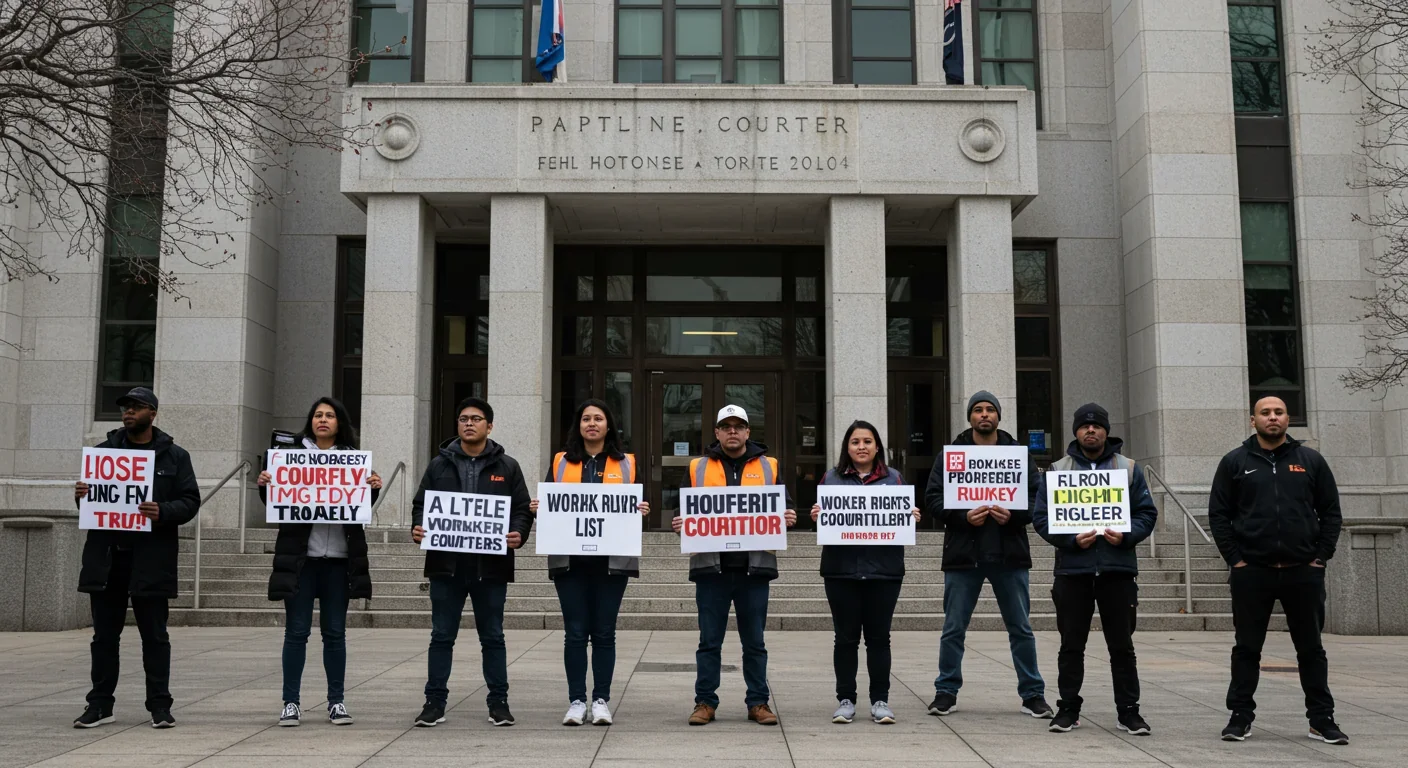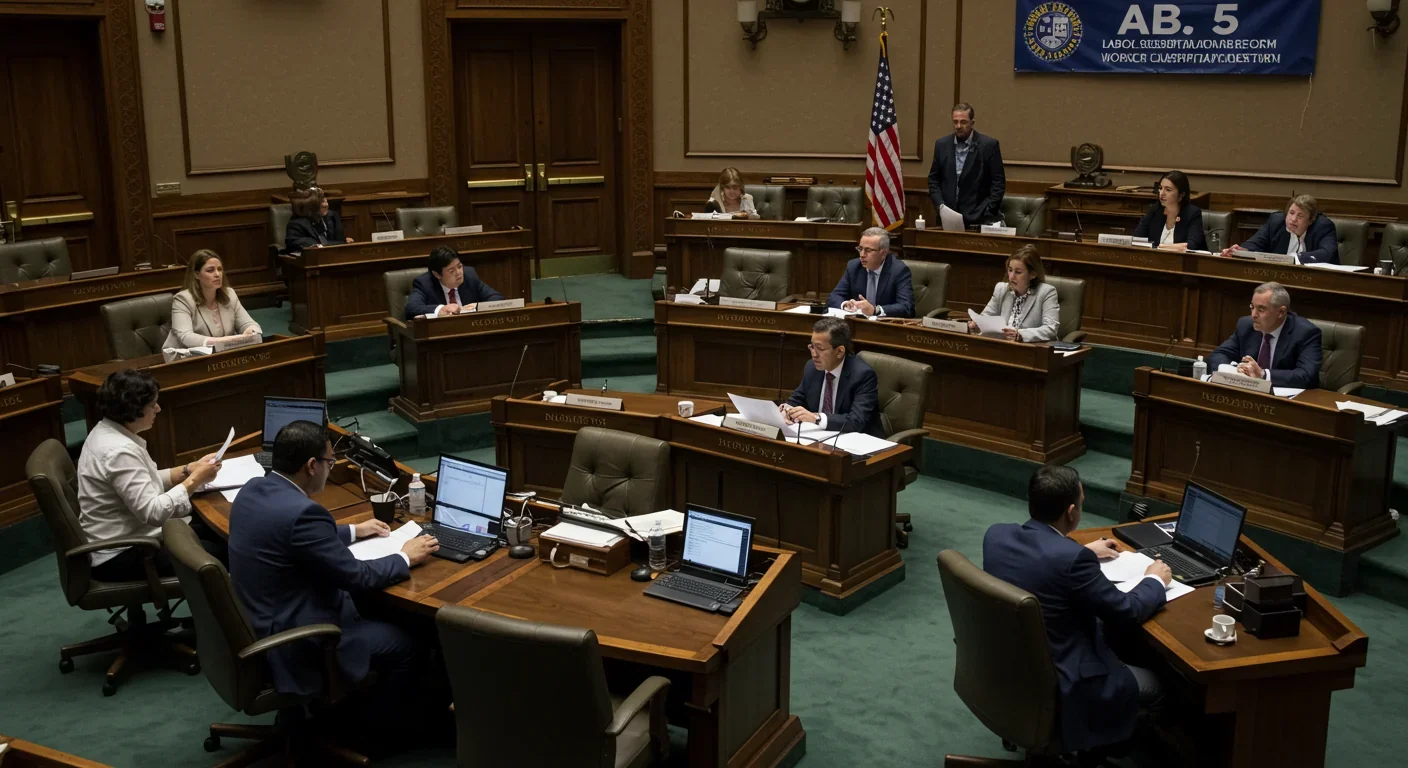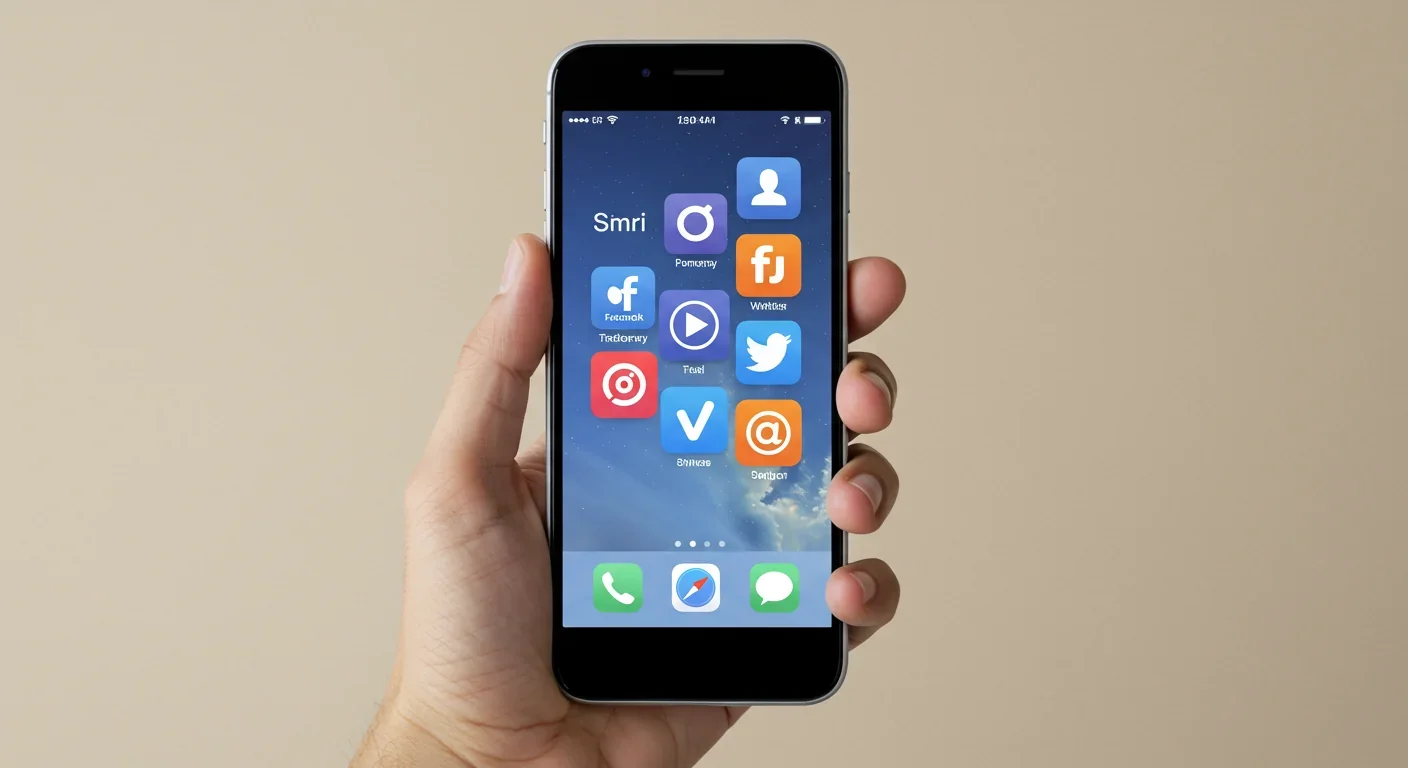Crypto in Authoritarian States: Freedom or Evasion Tool?

TL;DR: Courts are revolutionizing gig worker rights through the ABC test, forcing platforms to reclassify contractors as employees or face billions in lawsuits.

Imagine losing access to unemployment benefits because an algorithm decided you weren't really an employee. That's the reality for millions of gig workers today, but a series of landmark court battles is forcing platforms and lawmakers to rethink what employment actually means. From California's AB5 legislation to New York's groundbreaking unemployment rulings, the legal landscape is shifting faster than most riders, dashers, and freelancers realize. The stakes? Billions of dollars in back pay, the future of flexible work, and the very definition of what it means to be employed in the 21st century.
The gig economy didn't invent independent contracting, it just industrialized it. What started with Uber's launch in 2009 has become a $455 billion industry employing over 70 million Americans. Platforms like DoorDash, Lyft, Instacart, and TaskRabbit promised workers freedom and flexibility while building business models on a simple premise: treat everyone as a contractor, not an employee.
This model worked brilliantly for platforms. No payroll taxes. No workers' compensation. No health insurance. No minimum wage. The savings were astronomical. Studies suggest companies save 20-30% on labor costs by classifying workers as independent contractors instead of employees.
But workers paid the price. When a DoorDash driver gets injured on the job, they're on their own. When demand drops and earnings plummet, there's no unemployment safety net. When algorithms change pay structures overnight, there's no recourse. The platforms called it entrepreneurship. Workers and regulators increasingly call it exploitation.
The legal battle centers on a deceptively simple question: what makes someone an employee versus an independent contractor? For decades, courts used the common law test, a murky 20-factor balancing act examining control, independence, and business relationships. Platforms loved this ambiguity because it let them argue both ways: workers were independent enough to deny benefits but controlled enough to enforce service standards.
Then came Dynamex Operations West, Inc. v. Superior Court. In 2018, California's Supreme Court tossed out the old framework and introduced the ABC test, a bright-line rule that presumes all workers are employees unless the hiring entity proves three things:
A) The worker is free from the company's control and direction
B) The worker performs work outside the company's usual business
C) The worker is customarily engaged in an independently established trade
Part B is the killer. If you drive for a rideshare company, you're performing the company's core business. If you deliver food for a food delivery app, same story. Under the ABC test, platforms can't wiggle out by claiming drivers just happen to use their technology. Delivery is their business.
California codified the ABC test in Assembly Bill 5 (AB5), which took effect January 1, 2020. The immediate impact was seismic. Preliminary research showed self-employment in affected occupations dropped 10.5%, while overall employment fell 4.4%. Thousands of workers who thought they were independent found themselves reclassified or simply cut loose.
Uber, Lyft, DoorDash, Instacart, and Postmates weren't about to let AB5 destroy their business models. They funded the most expensive ballot initiative in American history, Proposition 22, spending over $200 million to carve out exemptions for app-based drivers.
In November 2020, California voters approved Prop 22, creating a third category: not quite employees, not quite contractors. Gig drivers got limited benefits like 120% of minimum wage for engaged time (not waiting time), healthcare stipends for those working 15+ hours weekly, occupational accident insurance. But they lost the right to unionize, unemployment benefits, and traditional workers' compensation.
Critics called it a corporate-funded end run around worker protections. Supporters praised it as preserving flexibility. Legally, it's complicated. A California judge ruled Prop 22 unconstitutional in 2021, but appeals courts reversed that decision. The legal ping-pong continues.

Meanwhile, the platforms face massive wage-theft lawsuits. California's attorney general is in settlement negotiations with Uber and Lyft over claims they owe workers billions in unpaid wages, overtime, and expense reimbursements for the period before Prop 22. San Francisco sued WorkWhile, a gig staffing firm, for misclassifying thousands of warehouse and event workers.
California isn't alone. Massachusetts just reached a groundbreaking settlement with Uber and Lyft, establishing a $175 million fund for drivers while maintaining their contractor status but guaranteeing minimum earnings, paid sick leave, and accident insurance.
New York has taken a different approach. Instead of wholesale reclassification, the state's highest court ruled that certain gig workers qualify for unemployment insurance. The decision came after a Postmates courier was denied benefits, challenging the narrow definition of employment. The court found that platforms exercise sufficient control to trigger unemployment protections, even if workers aren't traditional employees.
This unemployment angle is critical. During COVID-19, the federal Pandemic Unemployment Assistance program extended benefits to gig workers for the first time. Millions discovered what they'd been missing. New York unemployment offices were flooded with claims from workers who'd never had access before. Now states are wrestling with whether that temporary expansion should become permanent.
Part of what makes this so confusing is that different tests apply in different contexts. The ABC test governs wage and hour claims in California, but federal law still uses different standards for tax purposes, benefits, and civil rights protections.
The IRS uses a common law control test focused on behavioral control, financial control, and the relationship type. The Department of Labor recently issued guidance emphasizing economic reality, whether workers are economically dependent on the employer or truly in business for themselves.
Then there's the Fair Labor Standards Act (FLSA), which courts interpret using the economic realities test. Title VII anti-discrimination law has its own employee definition. Workers' compensation laws vary by state. A worker could be an employee for minimum wage purposes, a contractor for tax purposes, and something in between for workers' comp.
Legal experts call this a classification disaster. Platforms exploit the ambiguity, arguing they're contractors under favorable tests and employees under unfavorable ones. Workers fall through the cracks, unable to access basic protections because no single framework covers all scenarios.
The consequences of misclassification aren't abstract. Real workers have filed major lawsuits that expose the system's failures.
In 2016, Uber settled a class action for $100 million (later reduced to $84 million) with California and Massachusetts drivers over misclassification. The settlement let Uber keep calling drivers contractors, which tells you how valuable that classification is.
A federal court approved a $27 million settlement in a different Uber case where drivers claimed they were denied expense reimbursements and tips they'd earned. Lyft settled similar claims for $27 million. FedEx paid $240 million to resolve claims from drivers who argued they were misclassified employees.
DoorDash faces an avalanche of claims. One driver-turned-whistleblower spoke with a class action attorney who predicted DoorDash is screwed based on wage theft patterns, forced arbitration violations, and systematic denial of protections. The platform's practice of reducing base pay when customers tip more has triggered particular outrage.
Workers' compensation is another flashpoint. When gig workers get injured, they usually can't access workers' comp benefits because they're not employees. A delivery cyclist hit by a car might face medical bankruptcy. A TaskRabbit injured moving furniture has no safety net. Workers' comp laws in most states simply weren't designed for gig work.
Platforms argue that employee status would destroy flexibility. If drivers become employees, companies would need to control schedules, restrict working for competitors, and eliminate the work whenever you want model. Studies show most gig workers value flexibility highly, it's often why they chose gig work.

But that flexibility argument gets complicated. Algorithms already control most work aspects. Apps assign orders, set pay rates, monitor acceptance rates, and deactivate workers who don't maintain platform standards. Drivers can't negotiate. They can't see full trip details before accepting. They work when they want, within the parameters the algorithm allows.
Research suggests the ABC test's employment impact varies. Some workers lose opportunities as platforms reduce contractor headcount. Others gain protections and higher effective wages. The net effect depends on how platforms adapt and whether governments enforce the rules.
Platform compliance has been spotty. Many companies simply ignore classification laws, betting that workers won't sue and regulators won't crack down. When enforcement does happen, settlements often let companies keep their contractor model in exchange for limited concessions. Real accountability remains elusive.
If you're a gig worker, you're not powerless. Start by documenting everything. Keep records of hours worked, pay received, expenses incurred, and any platform communications. If misclassification led to unpaid wages or denied benefits, you might have a claim, and the statute of limitations is ticking.
Understand which test applies in your situation. If you're fighting for minimum wage or overtime, the ABC test might help in ABC states. For unemployment benefits, check your state's specific standards. New York workers, for instance, should know they may qualify for benefits even if platforms label them contractors.
Know when to stop working. If you're receiving unemployment and pick up gig work, you may need to report that income and potentially stop certifying for benefits. The rules are specific and violations can trigger overpayment demands.
Consider joining worker advocacy groups. Organizations like Gig Workers Rising, Rideshare Drivers United, and the Independent Drivers Guild provide resources, legal support, and collective bargaining power. Platforms are better funded, but organized workers have won significant victories.
For platform operators and employers, misclassification isn't just unfair, it's expensive. Businesses using independent contractors need to review those relationships immediately under applicable state standards.
In ABC test states, ask hard questions. Does the worker perform services within your usual business course? Do you control how work gets done? If you fail any prong, you're risking massive liability.
Beyond legal tests, examine economic reality. Workers economically dependent on your platform probably aren't true independent contractors. If someone earns most of their income from your app, works full-time equivalent hours, and can't realistically negotiate terms, employee classification might be appropriate, and it might actually help you build a more stable, committed workforce.
Some platforms are experimenting with hybrid models. Providing benefits without full employment status, creating worker councils, offering more transparency and control. Massachusetts's settlement with Uber and Lyft shows that middle ground exists if companies engage constructively instead of fighting to preserve every advantage.
The gig worker classification war is far from over. Bills modeled on California's AB5 have been introduced in dozens of states. Federal legislation keeps getting proposed and stalling. The PRO Act, which would establish ABC testing nationally for labor law purposes, has passed the House but faces Senate opposition.
Litigation will continue shaping the landscape. The Supreme Court declined to hear challenges to AB5, but that doesn't end the fight. Every jurisdiction interprets standards differently. Every platform pushes boundaries differently. Class action lawyers are watching, building cases, recruiting plaintiffs.
Some envision a portable benefits system where benefits follow workers across platforms. Workers would accrue healthcare, retirement, and insurance credits based on hours worked, regardless of employment status. The challenge is funding, platforms that don't want to pay employment costs definitely don't want to fund portable benefits.
Technology might offer solutions. Blockchain-based work verification, smart contracts automating benefit calculations, and decentralized platforms where workers have ownership stakes could reshape the entire model. But those innovations remain mostly theoretical.
Step back from legal technicalities and a bigger question emerges: what should work look like in a digitally mediated economy?
The gig model promised to liberate workers from rigid employment, letting people monetize spare time and skills on their terms. In practice, it's created a precarious workforce competing for algorithmically assigned tasks with little stability or protection.
Traditional employment evolved to include benefits because purely market-based labor relationships left workers vulnerable to exploitation, injury, and poverty. Minimum wages, overtime, workers' comp, unemployment insurance, Social Security, these protections exist because unfettered capitalism failed workers catastrophically during the Industrial Revolution.
Now we're conducting a similar experiment. Platforms are testing whether technology can reverse a century of labor law, returning to pure contract relationships where workers absorb all risk. Early results aren't encouraging. Gig workers earn less on average than traditionally employed workers in similar roles, experience more income volatility, and lack access to benefits most workers take for granted.
Courts are pushing back by applying existing legal frameworks. But maybe we need entirely new frameworks, a social contract for the platform economy that provides flexibility and security, innovation and fairness.
If there's one thing this legal chaos makes clear, it's that employment classification isn't settled, it's being actively contested right now. The driver delivering your lunch, the person cleaning your Airbnb, the freelancer designing your website, their legal status, their protections, their economic security are all in flux.
That uncertainty affects everyone. If you're a gig worker, your access to benefits could change with the next court ruling or ballot initiative. If you run a platform or hire contractors, you're navigating shifting legal ground where yesterday's accepted practice is tomorrow's multimillion-dollar liability.
The gig war isn't just about rideshare drivers. It's about whether the future of work includes basic protections or returns to 19th-century labor conditions with a smartphone interface. Courts, legislatures, voters, and workers are all weighing in. The outcome will shape how we work for decades.
So pay attention. Because the next ruling, settlement, or law might redefine not just what gig workers are entitled to, but what you're entitled to in an economy where more work looks like a gig every day.

Saturn's iconic rings are temporary, likely formed within the past 100 million years and will vanish in 100-300 million years. NASA's Cassini mission revealed their hidden complexity, ongoing dynamics, and the mysteries that still puzzle scientists.

Scientists are revolutionizing gut health by identifying 'keystone' bacteria—crucial microbes that hold entire microbial ecosystems together. By engineering and reintroducing these missing bacterial linchpins, researchers can transform dysfunctional microbiomes into healthy ones, opening new treatments for diseases from IBS to depression.

Marine permaculture—cultivating kelp forests using wave-powered pumps and floating platforms—could sequester carbon 20 times faster than terrestrial forests while creating millions of jobs, feeding coastal communities, and restoring ocean ecosystems. Despite kelp's $500 billion in annual ecosystem services, fewer than 2% of global kelp forests have high-level protection, and over half have vanished in 50 years. Real-world projects in Japan, Chile, the U.S., and Europe demonstrate economic via...

Our attraction to impractical partners stems from evolutionary signals, attachment patterns formed in childhood, and modern status pressures. Understanding these forces helps us make conscious choices aligned with long-term happiness rather than hardwired instincts.

Crows and other corvids bring gifts to humans who feed them, revealing sophisticated social intelligence comparable to primates. This reciprocal exchange behavior demonstrates theory of mind, facial recognition, and long-term memory.

Cryptocurrency has become a revolutionary tool empowering dissidents in authoritarian states to bypass financial surveillance and asset freezes, while simultaneously enabling sanctioned regimes to evade international pressure through parallel financial systems.

Blockchain-based social networks like Bluesky, Mastodon, and Lens Protocol are growing rapidly, offering user data ownership and censorship resistance. While they won't immediately replace Facebook or Twitter, their 51% annual growth rate and new economic models could force Big Tech to fundamentally change how social media works.